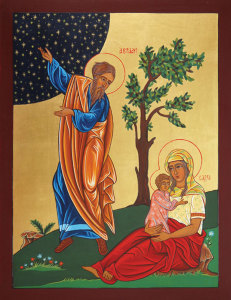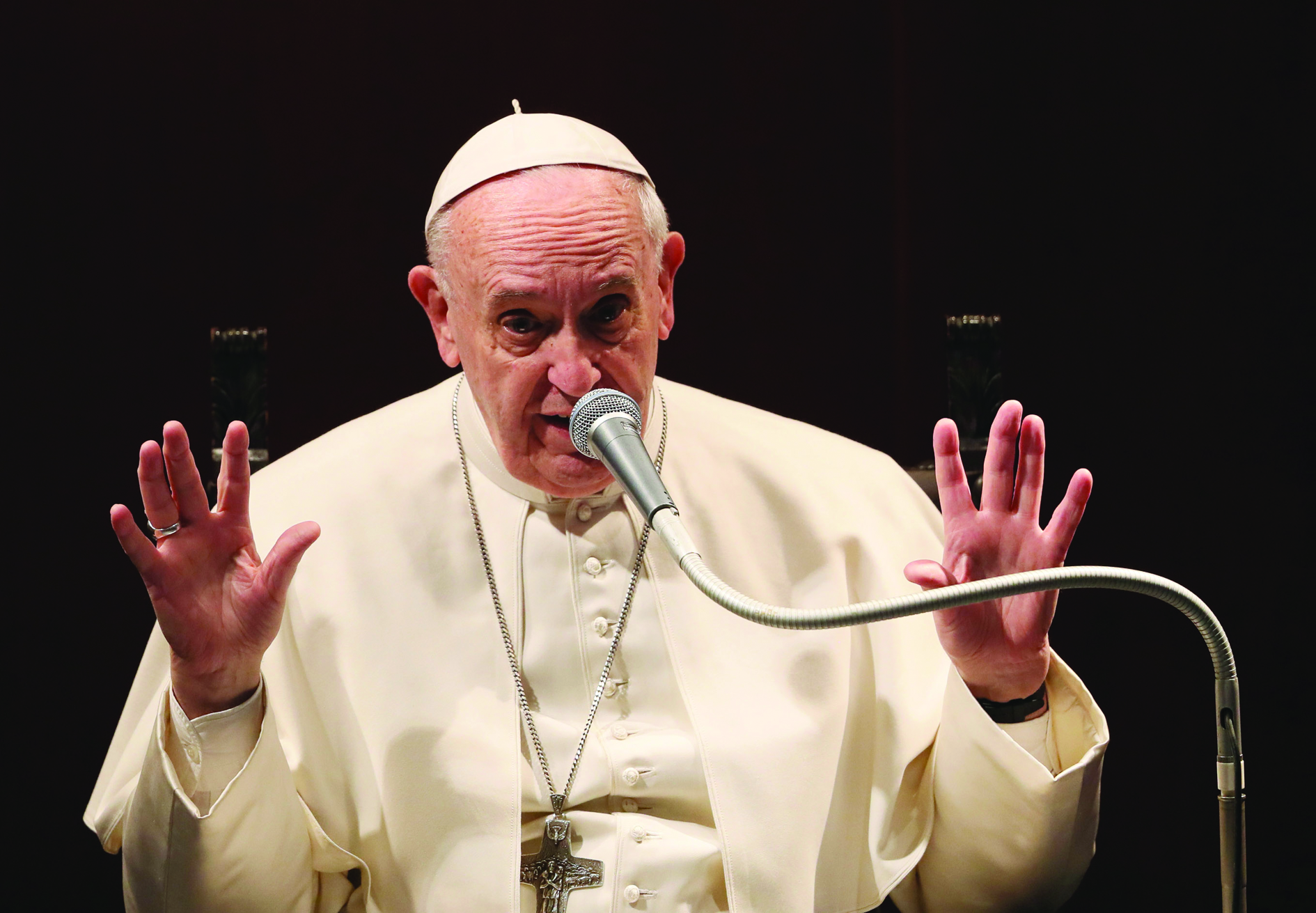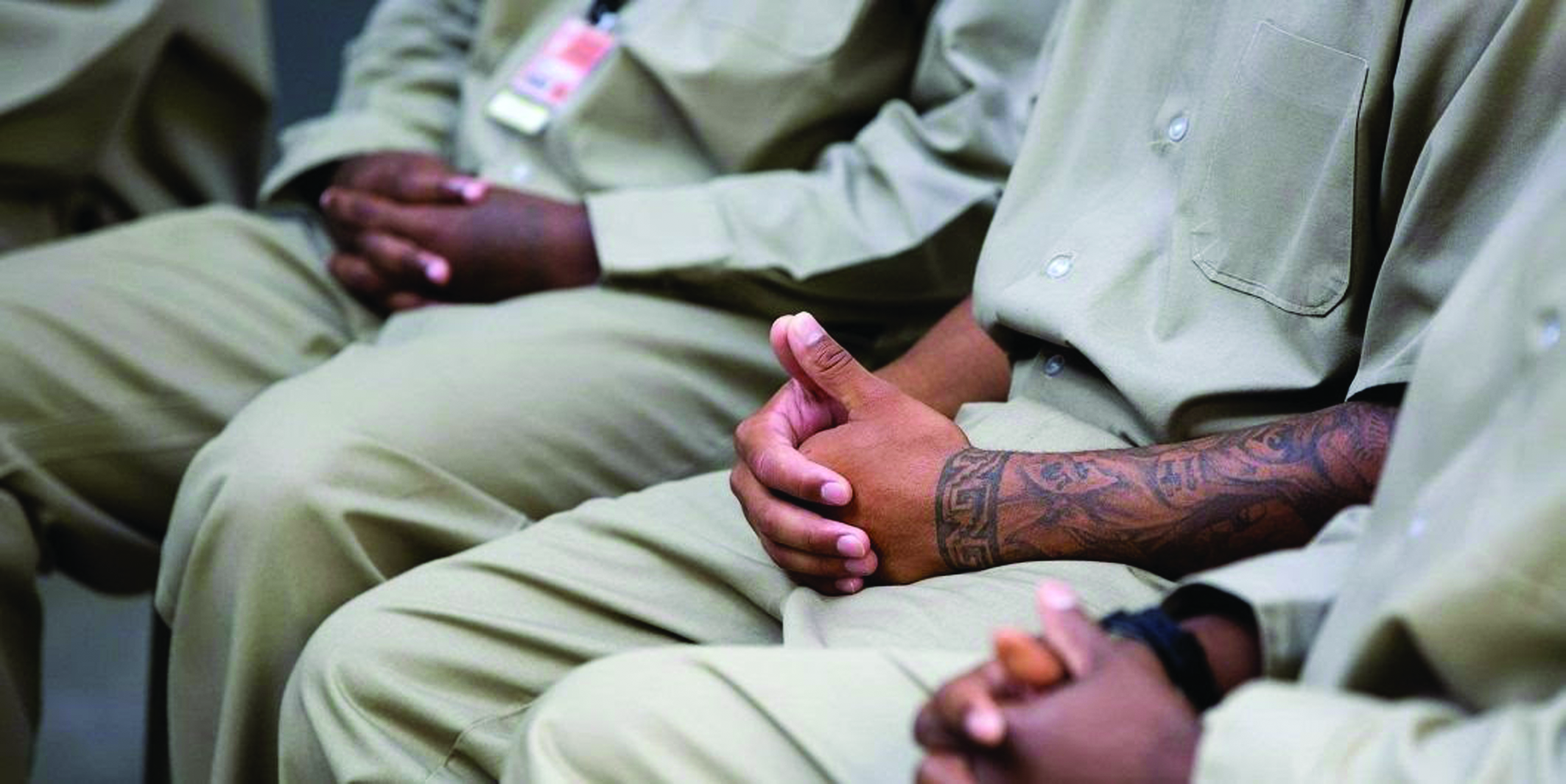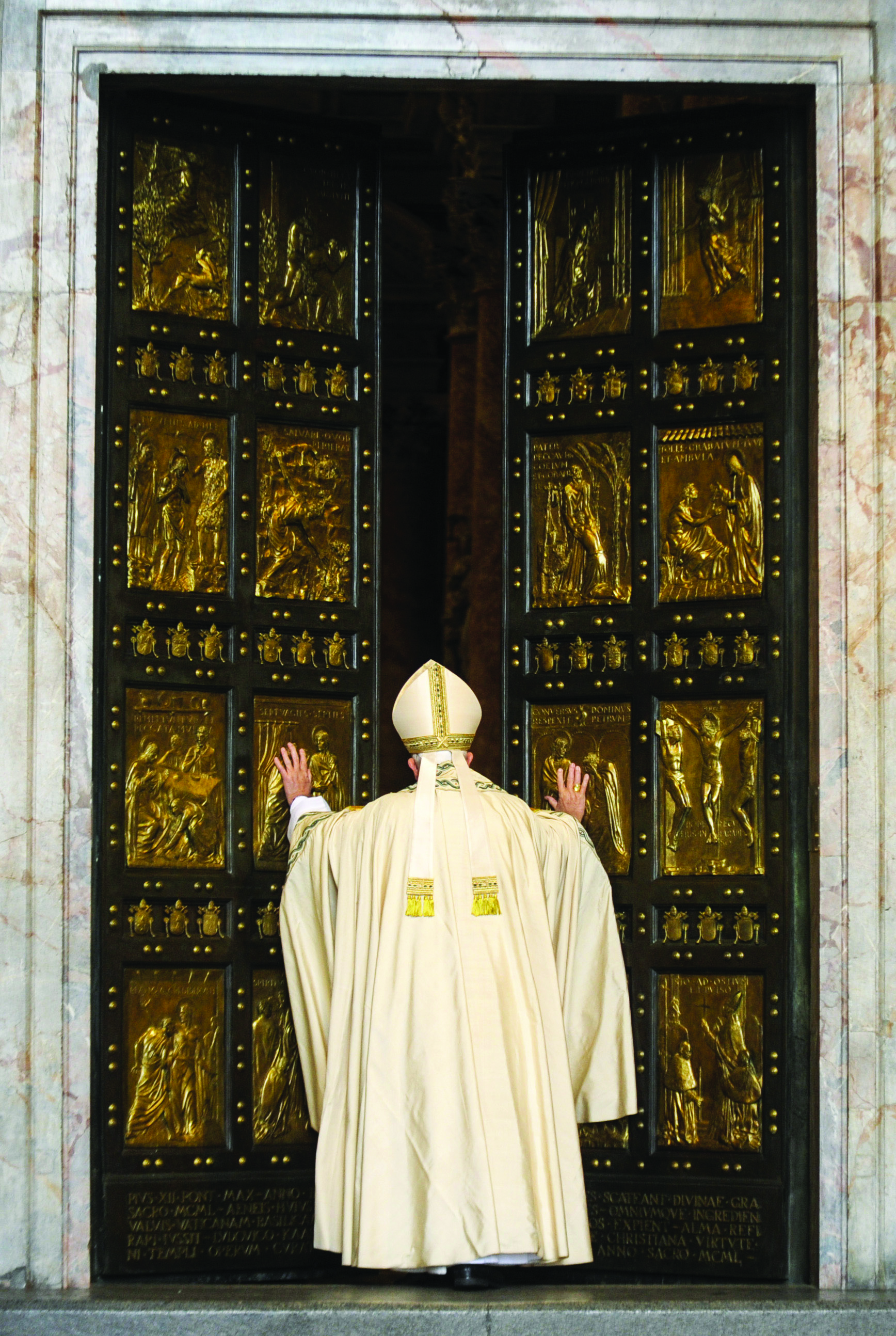By Maria Pia Carriquiry Gomez
In the last issue, we once again took up some of the meditations Pope Francis made at Casa Santa Marta, speaking to us about Divine Mercy: the Mercy of a God Who loves us, Who loves me.
In this issue, we want to propose another beautiful homily, on the second fundamental and recurring theme in Pope Francis’ magisterium: Christian joy.
Divine Mercy and the joy of the believer
What is it that allows others to recognize a Christian who doesn’t live only according to norms and precepts, but who has a faith that is truly alive? It is the fact that he is joyous, full of awe at God’s love for him; he has experienced that our God is not a distant God, but rather a God Who is present, Who loves me in this very instant, Who loves me now and Who doesn’t place any conditions on His love.
There is nothing more beautiful in this world than the full joy that comes with feeling we are loved, preferred, just the way we are, with all of our limits and our smallness. And the more our limits and fragile nature are evident, the stronger the cry comes from within our hearts: Jesus, You Who can do everything, You Who created me and Who recreate me every day, come to save me! Let me see You, let me know You. Fill my heart with Your Love, so that I can experience, in the circumstances and relationships of my life, where true Joy lies.
Yes… because one can recognize faith, with conviction, in a joyful face, because nothing can generate such heartfelt gladness outside the experience of Jesus’ Love for me: as Pope Francis has called it so many times, God’s “caress” for me.
A certain kind of “spiritualism,” a faith made up of theories that don’t touch daily life, is incapable of making our hearts happy, or of putting a joyful expression on our faces. Only through actually living, encountering (almost all of a sudden) that Love that is God’s, so tender and gratuitous, that our entire being yearns for with every breath, can we have a life that is beautiful and full, worthy of being lived.
And only then does every detail start being sweet, from love toward self, to the circumstances we are given to live in through each day, to our relationships with family members, work colleagues, and the people we meet on our daily journey.
Ode To Joy
Thursday, March 26, 2015
Joy and hope are Christian traits. It is sad to find a believer who knows no joy and is fearful in his attachment to cold doctrine. This was the inspiration for Francis’ ode to joy during Thursday’s Mass at Santa Marta. At the beginning of Mass, the Pope acknowledged the Carmelite “Hour of Prayer for Peace.” “Dear brothers and sisters,” he said, “the day after tomorrow, March 28, will be the fifth centenary of the birth of St. Teresa of Jesus, Virgin Doctor of the Church.” And “on that day at the request of the Superior General of the Discalced Carmelites, who is here today with Fr. Vicari, all the Carmelite communities in the world will hold an hour of prayer for peace. I wholeheartedly join this initiative,” Francis affirmed, “in order that the flame of God’s love may extinguish the fires of war and of violence that plague mankind, and that dialogue may prevail over armed conflict everywhere.” He concluded these initial remarks by adding: “May St. Teresa of Jesus intercede for this, our petition.”
The Pope’s homily began with a reference to “two Readings offered by today’s Liturgy” (Gn 17:3-9 and Jn 8:51-59), which “speak of time, of eternity, of years, of the future, of the past.” In fact, “time seems to be very important in the liturgical message” of the day, he said. However, Francis chose to reflect on different words which he believed, he said, “to really be the message in the Church today.” They are the words of Jesus as narrated by John the Evangelist: “Your father Abraham rejoiced that he was to see my day; he saw it and was glad.”
Thus, today’s central message is “the joy of hope, the joy of trusting in God’s promise, the joy of fruitfulness.” In fact, “Abraham, in the time that the First Reading speaks about, was 99 years old and the Lord appeared to him and secured the covenant” with these words: “Behold, my covenant is with you, and you shall be a father.”
Abraham, Francis continued, “had a 12- or 13-year-old son: Ishmael.” But God assured him that he would become “the father of a multitude of nations,” and “changed his name.” Then “He continued and asked him to be faithful to the covenant,” saying: “I will establish my covenant between me and you and your descendants after you throughout their generations for an everlasting covenant.” Essentially, God told Abraham: “I give you everything, I give you time: I give you all, you will be father.”
Surely, said the Pope, Abraham “was happy about this, was filled with comfort” in hearing the Lord’s promise: “Within a year you shall have another son.” Of course, in hearing these words, “Abraham laughed, the Bible says afterwards: how, a son at 100 years old?” Yes, “he had begotten Ishmael at 87 years, but at 100 years a son is too much. It was incomprehensible!” Therefore, “he laughed.” But “that smile, that laughter was the beginning of Abraham’s joy.” Here then, the Pope brought back the essence of Jesus’ words as the day’s central message: “Your father Abraham rejoiced.” Indeed, he “didn’t dare believe and said to the Lord: ‘But if only Ishmael should live in your presence.’” To which he received the response, “No, it shall not be Ishmael. It shall be another.”
Thus, the Pope stated, Abraham “was joyful” and “a little later his wife Sarah also laughed. She was hiding behind the tent door, listening to what the men were saying.” And “when these messengers of God gave Abraham the news about his son, she too laughed.” And this really was “the beginning of the great joy of Abraham,” Francis said. Yes, “the great joy: he rejoiced in the hope of seeing this day; he saw it and was filled with joy.” The Pope recommended that we look to “this beautiful icon: Abraham who was before God, who bowed himself to the earth. He heard this promise and his heart opened to hope and was filled with joy.”
This is precisely “what these doctors of the law did not understand,” Francis said. “They did not understand the joy of the promise; they didn’t understand the joy of hope; they didn’t understand the joy of the covenant. They did not understand.” And “they didn’t know how to rejoice, for they had lost the sense of joy that only comes from faith.” However, the Pope explained, “our father Abraham was able to rejoice because he had faith; he had been made righteous in faith.” Meanwhile the doctors of the law “had lost the faith: they were doctors of the law, but without faith!” Moreover, “they had lost the law! Because the center of law is love, love for God and for neighbor.” However, they “had only a system of specific teachings which they refined further every day so that no one would touch them.”
They were “men without faith, without laws, attached to doctrines which had even become a casuistic approach.” Francis also proposed practical examples: “We can pay taxes to Caesar, can’t we? This woman, who was married seven times, when she went to heaven, would she be the spouse of those seven?” And “this casuistry was their world: an abstract world, a world without love, a world without faith, a world without hope, a world without trust, a world without God.” For this very reason “they were unable to rejoice.” They didn’t even enjoy themselves at parties, the Pope affirmed, although they surely “uncorked a few bottles when Jesus was condemned.” But they were always “without joy,” or moreover, “afraid that one of them, perhaps while drinking” would remember the promise that “He would rise.” And thus, “straight away, with fear, they went to the prosecutor to say ‘Please, be careful with this one, that it isn’t a trick.’” All this was because “they were afraid.”
But “this is life without faith in God, without trust in God, without hope in God,” the Pope affirmed once again. It was the life of these men, he added, “who only when they understood that they had been wrong” thought that the only choice left was to take up stones to throw at Jesus. “Their heart had become stone.” Indeed “it is sad to be a believer without joy,” Francis explained, “and there is no joy when there is no faith, when there is no hope, when there is no law, but only the prescriptions, the cold doctrine. This is what counts.” In contrast, the Pope again proposed “Abraham’s joy, that beautiful act of Abraham’s laughter” when he heard the promise of having “a son at 100 years”; as well as “Sarah’s smile, a smile of hope.” This is because “the joy of faith, the joy of the Gospel is the touchstone of a person’s faith: without joy that person is not a true believer.”
In conclusion, Francis used the very words of Jesus: “Your father Abraham rejoiced that he was glad to see my day; he saw it and was glad.” The Pope then asked “the Lord for the grace to rejoice in hope, the grace to be able to see the day of Jesus, when we will be with Him, and the grace of joy.”
—L’Osservatore Romano









Facebook Comments